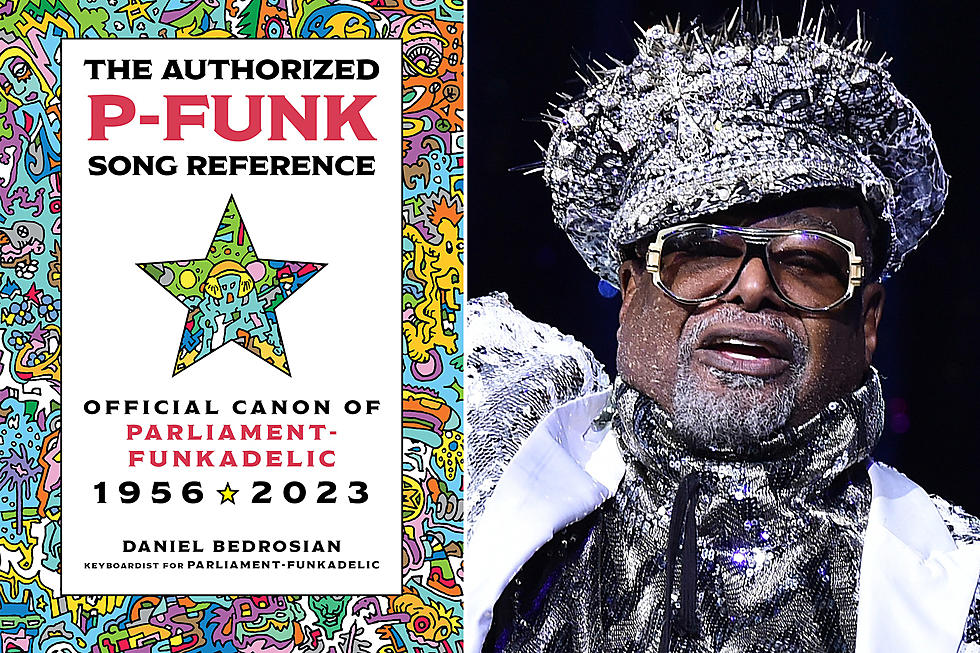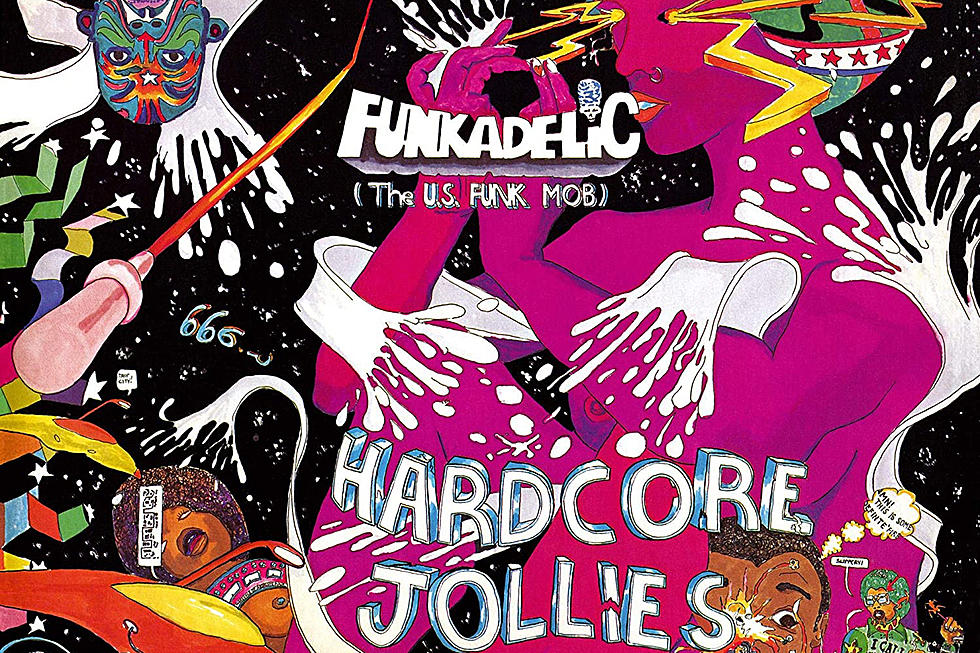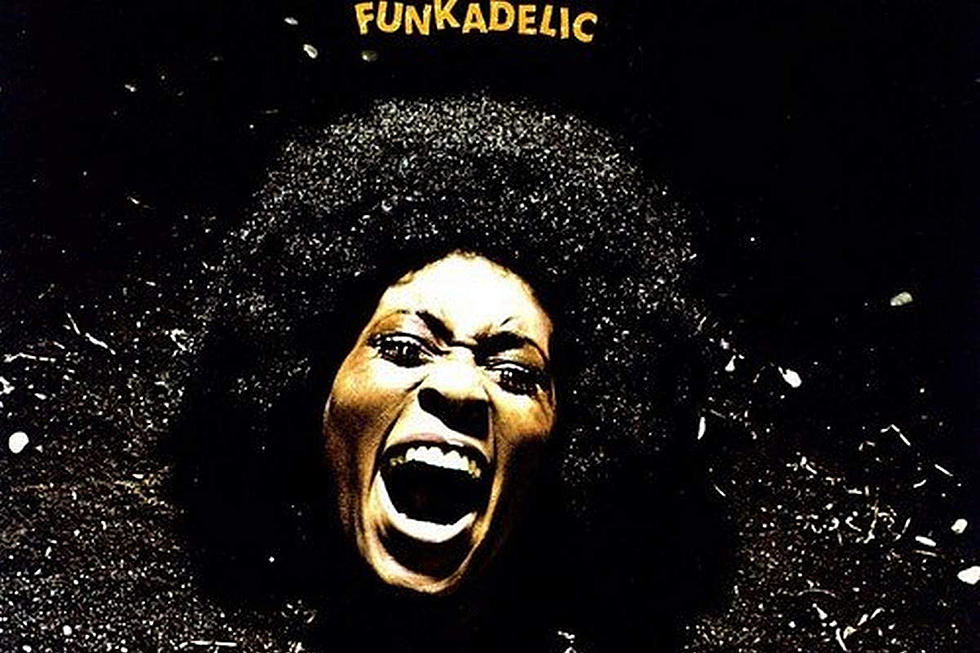Why the Heck Aren’t Funkadelic Considered Classic Rock?
Who says a jazz band can't play dance music? Who says a rock band can't play funky? Who says a funk band can't play rock?
Funkadelic came right out and asked these questions with their 1978 song "Who Says a Funk Band Can't Play Rock?!," but they were part of the group's manifesto long before — and a reflection of the loose, genre-flouting attitude that made them pioneers while also leaving them orphaned in the mainstream margins. They aren't often mentioned in the same breath with the biggest or most influential classic rock bands of their era, but they deserve to be.
Name notwithstanding, Funkadelic were always a rock band as much as anything. "The fact is," wrote John Abbey for Blues & Soul in 1971, "that they are more of a progressive rock act than anything else." While many of the music critics of the era weren't quite sure what to make of bandleader George Clinton and his huge crew of personnel — or a feedback-drenched stage show that included frequent disrobing — the strong rock component of their sprawling sound was impossible to ignore.
Almost impossible, anyway. Although Funkadelic started scoring R&B hits with their self-titled debut album in 1970, pop and rock radio persistently proved reluctant to embrace the group, passing on early singles like "I'll Bet You" and "I Wanna Know If It's Good to You?" while their profile continued to rise on the other side of the dial. As time went on and the band refined its sound, the trippy, feedback-drenched psychedelic overtones of earlier efforts were increasingly foregone in favor of a tighter approach that played up the funk while still leaving plenty of room in the spotlight for the guitar — as on the epic title track to 1971's Maggot Brain, which largely consists of a lengthy, single-take solo performed by guitarist Eddie Hazel.
As Funkadelic's audience grew, Clinton and the band expanded their ambitions, incorporating overarching narratives into concept records that invented a cast of characters and took listeners on an odyssey into outer space with the exiled Thumpasorus Peoples, who'd fled Earth on their mothership after being driven off the planet by Cro-Nasal Sapiens who'd "slicked their hair and lost all sense of the Groove." The group's live show, always heavily theatrical, expanded to include a spaceship landing — a spectacle compared to the sort of live antics indulged in by acts like Kiss and Alice Cooper.
Listen to Funkadelic's 'Maggot Brain'
Yet rock radio remained indifferent to Funkadelic's increasingly adventurous sound — and it wasn't hard to pinpoint a major reason. Recalling that "I wasn’t getting played on no white stations because I was black and I didn’t get played on black stations ’cause to them it sounded like I was white," Clinton refused to let narrow-mindedness keep him from trying to reach the broadest possible audience. "Why couldn’t we be the Rolling Stones? Why couldn’t we be Cream? If it was just the color of our skin, that wasn’t going to stop us. Not when we had the tightest songs and the loudest guitars and the best singers."
As insistently as he may have pursued a place alongside rock's biggest-selling acts, Clinton was equally steadfast in refusing to make concessions along the way. "We ain't crossin' over; we just gonna sneak behind enemy lines," he told the Village Voice in 1979. Discussing Funkadelic's jump to Warner Bros. Records in an earlier interview with the paper, he pointed out, "All a promo man has to do is visit the FM station and convince 'em, like they gotta do with any rock group that's a little different. Now, if they play Kiss on FM stations, they'll play anything on FM stations, but as it is, they're fakin' the funk."
It would be hard to deny that institutionalized racism didn't play a part in Funkadelic's rock exile, but it would be almost equally disingenuous to suggest that it's the only reason the band never reached the commercial heights they deserved. As rich as their records could be, they were also often quite challenging — not only in terms of musical complexity, but thematically. To listen to a Funkadelic album was to give yourself over to Clinton's vision, no matter how dark, hazy and weird it got — and the band's lighter side often indulged in schoolyard scatological humor. As the '70s wore on and radio grew increasingly compartmentalized, the band's musical and lyrical breadth worked less and less in their favor.
Listen to Funkadelic's 'Red Hot Mama'
Clinton's own relentless prolificacy also likely worked against him. Funkadelic got its start because his earlier group, the Parliaments, was prevented from recording while tied up in contractual problems; not wanting to sit around waiting, he simply lined up a new deal for the Parliaments' backing band. Once they were out of label limbo, the Parliaments were reborn as Parliament, another group — with largely the same personnel — that offered a sonic counterpoint to Funkadelic's sound. Throughout the '70s, Parliament-Funkadelic offered two blurred sides of the same constantly spinning coin, and churned out a tall stack of records that could easily seem daunting for anyone approaching the catalog for the first time; as Keith Phipps noted for an A.V. Club Gateways to Geekery column, "It’s hard to know where to start digging into George Clinton’s P-Funk empire."
Sadly, by the early '80s, that empire had begun to crumble, and though Clinton would enjoy some of his bigger commercial successes in the late '70s and early '80s (including the Funkadelic hit "One Nation Under a Groove" and his solo single "Atomic Dog"), the nucleus of talented players he'd assembled started to fray under the strain of artistic, financial and chemical concerns. Yet the Parliament-Funkadelic collective remains active as a touring and recording entity — Funkadelic released the triple-disc set First Ya Gotta Shake the Gate in 2014 — and 16 members of the group were inducted into the Rock and Roll Hall of Fame in 1997.
At this point, it seems highly unlikely that Funkadelic will be granted their rightful place at the classic rock table, but even if we never get to hear "Red Hot Mama" or "Super Stupid" in heavy rotation alongside Skynyrd and Led Zeppelin, the advent of streaming music means the band's catalog is easier to delve into than ever. If you're feeling a little adventurous, hit your favorite digital outpost and take a trip through the Funkadelic catalog, and remember — free your mind ... and your ass will follow.
See the Top 100 Rock Albums of the '70s
More From Ultimate Classic Rock









